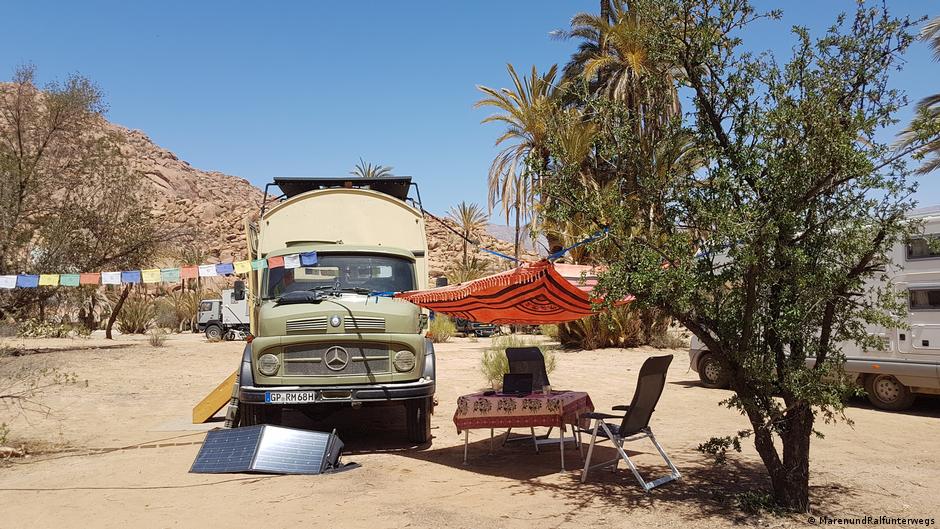
Coronavirus prolongs Germans' journey home from Morocco
by Anne TermècheMany Germans will remember their 2020 Morocco holiday for some time. On March 20, Morocco declared a state of emergency because of the coronavirus. The borders have been sealed ever since, stranding many German tourists.
"It's 40 degrees (104 degrees F) here. I need to find a shadier place." Since mid-March, Simon and Anne-Silja have been living with their two sons, aged 6 and 12, in a campervan parked in the palm grove of Tafraoute, a small town in south-eastern Morocco.
For several days they were the only ones here. Until last Tuesday when 10 other motorhomes parked in the sparse shade of the palm trees. They all took the ferries organized by the German Embassy to Genoa or Malaga. Simon and Anne-Silja stayed behind.
"We are in no hurry, so we will probably wait until the borders open again and we can cross over with a normal ferry. The tickets for the ferries chartered by the embassy are exorbitantly expensive," Simon said. "We paid €100 ($111) for the outward journey. I have now heard of prices up to €1,500."
The family is doing well, the locals provide them with water, exercise books, and bread, couscous or tajine — there is even a pizza delivery service. "We really can't complain," said Simon.

From holidaymakers to inadvertent permanent campers
In winter, Morocco is a popular destination for European tourists. It is the high season for campers and caravanners. Germans, in particular, like to spend the cold season under the Moroccan sun. In only 40 minutes on a ferry to cross from Algeciras on the Spanish mainland to the enclave Ceuta on the other side of the Strait of Gibraltar. But the coronavirus pandemic turned sunny Morocco into a trap.
On March 20, Morocco declared a state of emergency, and virtually from one day to the next the borders were sealed. The German Embassy advised people to leave their cars and fly back, but that was out of the question for many people. An estimated 4,000 campers from all over Europe are still stuck in Morocco.
Like Simon and Anne-Silja, many of those still in Morocco have installed themselves in parking lots and adapted to the circumstances. One of those circumstances is a curfew. Anyone who has to walk the two kilometers into the village requires a permit from the head of the village. Long-distance travel is prohibited. No one gets from A to B. On May 19, the state of emergency was extended until June 10.

One day a boat will come
The German Embassy in Rabat said it does what it can to help. The Foreign Ministry has brought almost 5,000 stranded tourists back to Germany from Morocco since mid-March. Even after the official end of the Foreign Ministry's largest repatriation operation in its history at the end of April, efforts continue. In Morocco, two ships left for Europe on May 19 and 20 with a total of 110 camping vehicles on board, and four flights left this week.
"We cannot make a reliable estimate of the total number of Germans still remaining in Morocco, as there is no obligation for German nationals abroad to register. Many of those who now want to return had initially decided against going home; others are on-site with a vehicle and do not want to leave it behind," the German Foreign Ministry told DW. The embassy is also trying to find a solution for the remaining holidaymakers. The German Foreign Ministry assumes there are a few hundred Germans still vacationing in Morocco.
Morocco on the edge of an abyss
For Morocco, the coronavirus pandemic has been a disaster, and the economic damage has been enormous. An estimated 500,000 people depend on work provided by the tourism sector and hardly any of them are earning money now. Of the nearly 4,000 approved accommodations, hotels, campsites and youth hostels in the country, only 520 were open at the beginning of May. Tourism is the second-strongest economic factor in Morocco and accounts for 11% of the gross domestic product. A total of 11 million guests come to Morocco every year, 80% of them Europeans.

Muriel Brunswig said she loves Morocco and is very worried. The Freiburg native has been providing travel services to Morocco for over 20 years and has written several travel guides about the country.
"Fortunately, there is a government aid program, but, in the end, it doesn't reach everyone and in the long run the help is not enough to live on. In Morocco, most people live from hand to mouth. At the moment, I cannot imagine how the hygiene measures in tourism can be implemented in Morocco, but it is clear that if things do not start happening soon, many people in Morocco will not be able to survive."
She said she hopes that a solution will be found so that everyone can get through the pandemic crisis without too much of a bruising. She is doing her part and is not demanding back the money that had already been paid to her partners in Morocco.
"They are much worse off than I am because, compared to me, they have fewer reserves and larger families to feed," she said, adding that everyone is waiting for the moment when tourists will be allowed back into the country.
Everyone wants to go home
But the flow of tourists is currently heading out of the country and towards Europe. Maren and Ralf already left. They are back in Europe with "Grandpa Theo," as they affectionately call their converted 1966 Mercedes Benz truck. They left Morocco on May 21 with a ferry chartered by the embassy and are now chugging towards their home in southern Germany. Driving through the transit countries swiftly is one of the requirements for all those who are now on their way home with their camper vans. "Grandpa Theo" is doing its best, but with a top speed of 78 kilometers per hour (48.5 mph) the trip across Spain and France is a lengthy one.

On January 2, Maren and Ralf had entered Morocco and wanted to travel around the country for three months. In the end, they were there for almost twice as long. Maren and Ralf saw how one set of instructions followed another and soon nobody knew what was going on. Especially at the beginning of the lockdown many raced to the ferry in Ceuta, the Spanish enclave in Morocco. Only to find that they couldn't travel any further.
Being well-connected is half the ticket
Maren is a woman who likes to get things done, likes to keep things organized and rarely puts down her mobile phone. She started a WhatsApp group for stranded campers in Morocco, collected reliable information and distributed it. Those who would like to leave the country must actively gather information themselves, register with "Elefand," the electronic registration of Germans abroad of the German Foreign Ministry, and regularly scan the German Embassy's Facebook page. And distinguish misleading information from the truth. Which seems to be a real problem. Because quite a few motor homeowners invested money in ship transfers that did not take place at all.
Maren quickly became the intermediary between the German Embassy and the campers scattered around the country.
"You need a little bit of preparation time if you're going to travel almost 1,000 kilometers by motorhome to the ferry in Tangier," Maren said.
They made it on board the "Balearia" and quickly made sure that a few Belgians could also get on board.
"We'll be coming back," Ralf said of Morocco. "The people in Morocco are so friendly. It is a wonderful country. We have seen far too little."
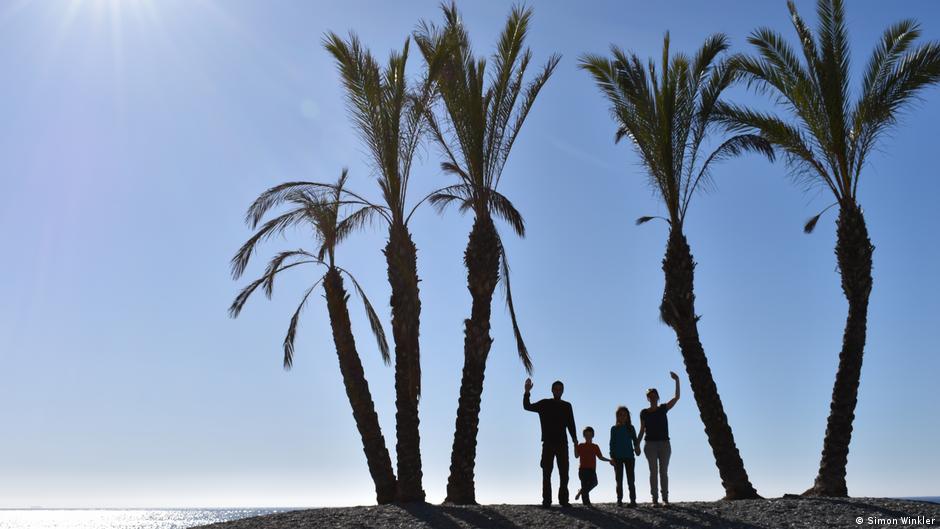
Simon and Anne-Silja will also be leaving Tafraout in the next few days, escaping the heat. They have now received an overland travel permit to travel north towards Tangier. From there they'll catch a ferry to Spain leave. It's a little over 900 kilometers to get there. A last chance to see at least a little bit of Morocco before a ferry brings them back to Europe.
Coronavirus: The consequences for tourism
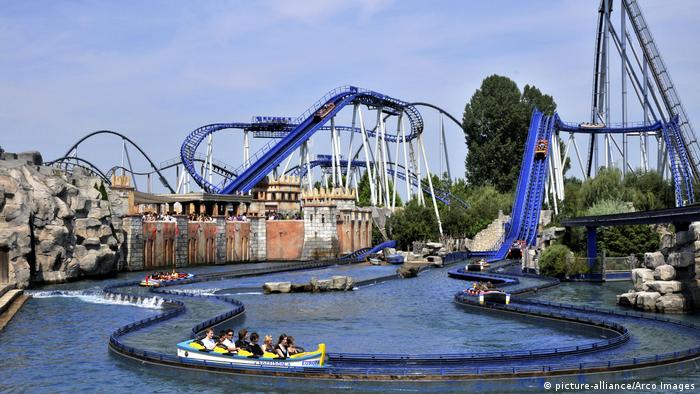
This is the first large amusement park in the world to resume operations. Rules are: Facemasks must be worn in the queue and every second seat must be left empty. More than 2.5 million tickets have already been requested online for the coming weeks. The Europapark Rust, located in the triangle of Germany, France and Switzerland, attracted 5.7 million visitors last year.
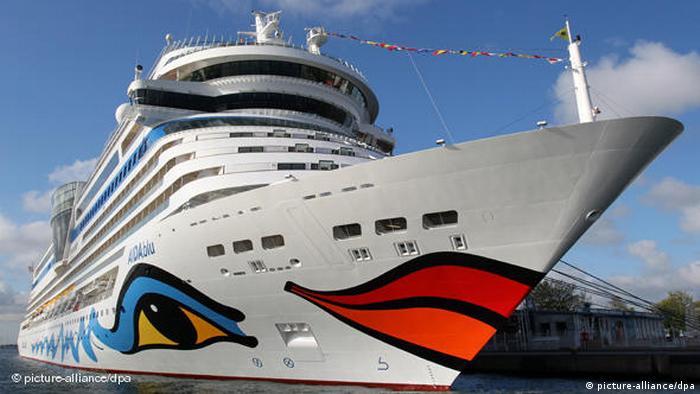
The 14 cruise ships of the German Rostock-based shipping company Aida Cruises will remain in port until July 31. In many holiday destination countries the regulations for international tourism are still being discussed, the company announced. The Italian shipping company Costa is also extending the cruise suspension for its fleet until July 31.
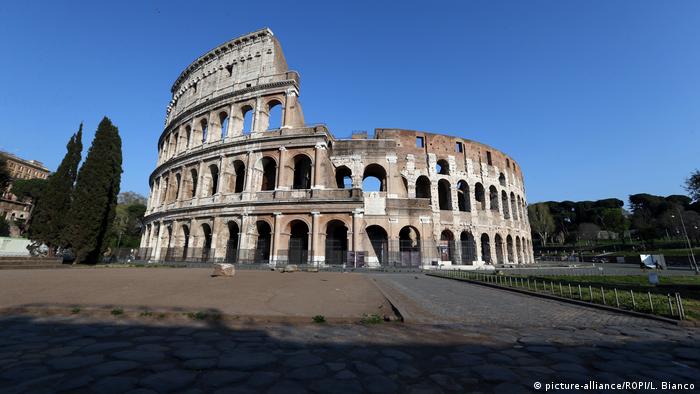
Rome's 2,000-year-old landmark can finally be visited again from June 1, and the Vatican Museums will also reopen on that day. Ancient Pompeii, south of Naples at the foot of Mount Vesuvius, is already welcoming visitors again, but only those from within the country. From June 3, however, foreign tourists will be able to return to Italy and visit the ancient sites.
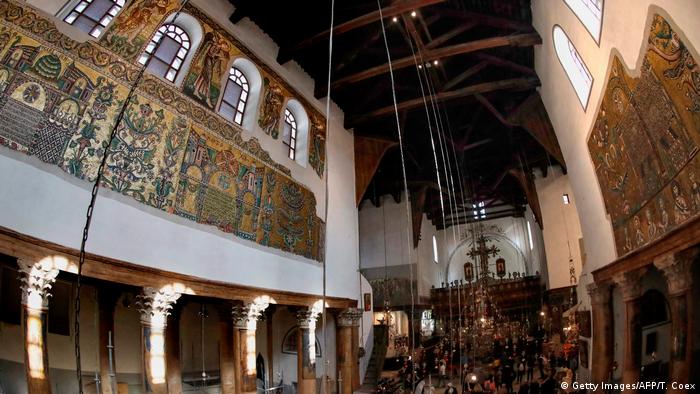
From today (May 26) one of the most sacred places of Christianity will be open to the public again. Only 50 people can enter the Church of the Nativity in Bethlehem; wearing facemasks is compulsory. While Jews have already been allowed to pray again at the Western Wall also known as the Wailing Wall, in Jerusalem, the Al-Aqsa Mosque on the Temple Mount is to open to Muslims at the end of the week.
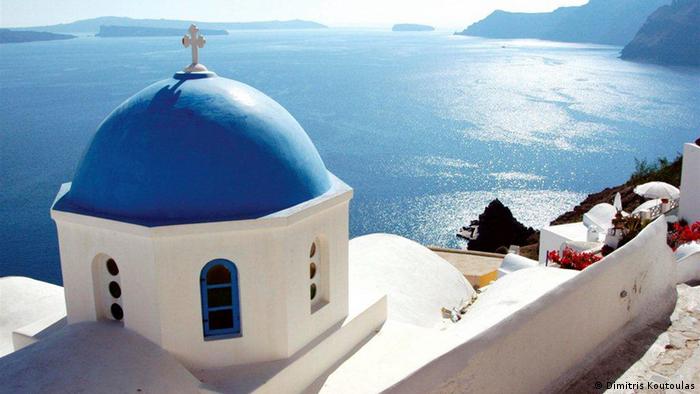
From Monday (May 25), Greece's islands will be accessible again by plane and ferry for domestic tourists. Taverns, bars and cafes are reopening nationwide. Ferries are to sell only 50% of their tickets, and taverns are only allowed to occupy half of their tables. The list of countries from which foreign tourists can enter Greece without a two-week quarantine will be announced at the end of May.
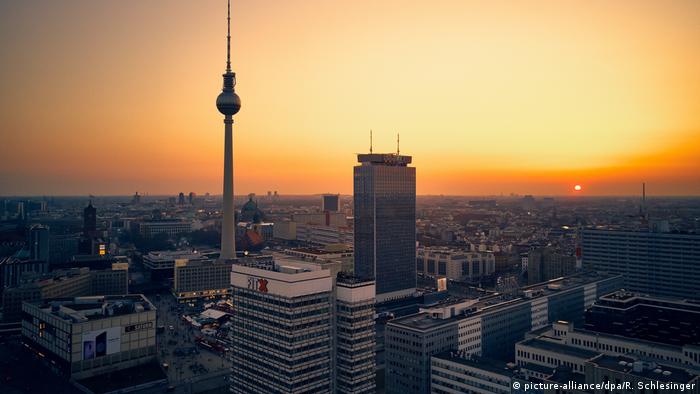
Starting on May 22, visitors will again be allowed on to the viewing platform and restaurant of the Berlin TV tower. Only about 50 people are allowed in at any one time, masks are mandatory, and tickets must be reserved online. At 368 meters (1207 ft.), the Berlin Television Tower is the tallest building in Germany and a popular tourist hotspot.
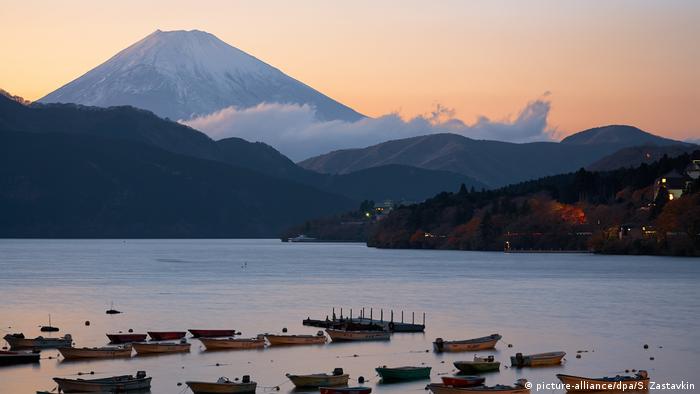
Due to the coronavirus pandemic, Japanese authorities have imposed a climbing ban on Mount Fuji on May 18, and all four routes on the mountain have been closed. Normally during the climbing season in summer, which lasts only two months, thousands of people climb the slopes of the volcano daily in single file. At 3,776 meters (12,389 feet), the mountain is the highest in Japan.
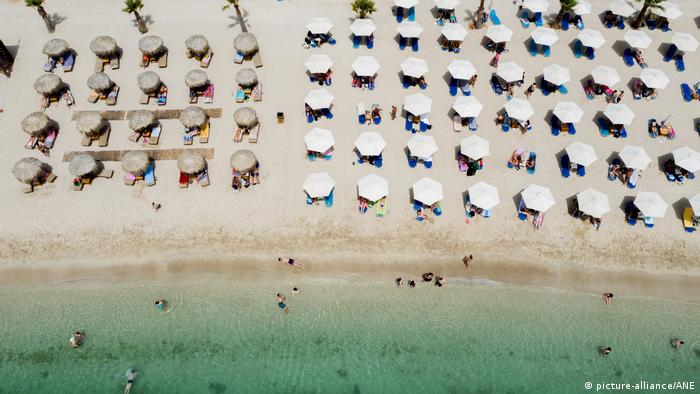
In Greece, all beaches in the country were reopened on May 16. According to media reports, strict regulations were observed: The distance between parasols had to be four meters and only two sunbeds per parasol were allowed. Beach bars could only sell packaged food and not serve alcohol. Is this a preview of summer holidays in Europe despite the coronavirus pandemic?
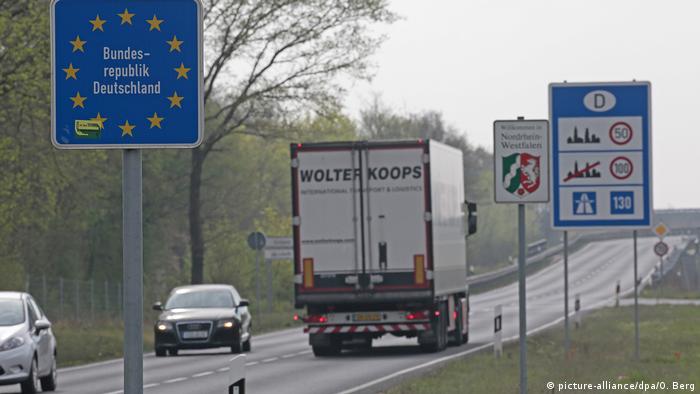
From May 15, people entering North Rhine-Westphalia from other EU countries and Schengen states no longer have to go into a 14-day home quarantine. The other German states are to follow in the next few days. Iceland, Norway, Liechtenstein and Switzerland are also exempt from the quarantine regulations, making travel to neighboring countries much easier.
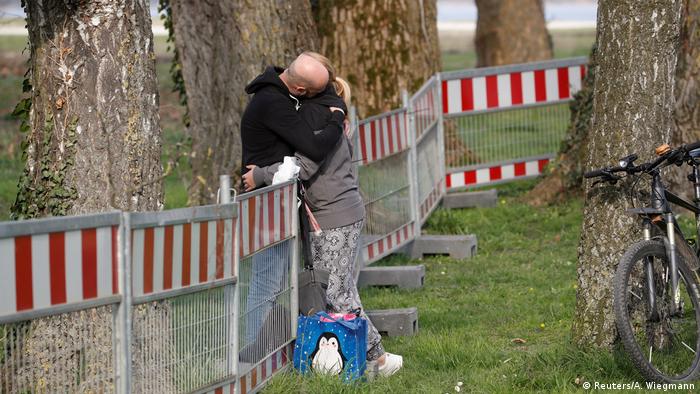
On May 16, Germany opened its borders to neighboring countries France, Austria and Switzerland. There will only be random checks, and no more checks at all for Luxembourg. However, there must still be "good" reasons for crossing the border. And love is accepted as such. For example, German-Swiss couples at Lake Constance (photo) — can visit each other again.
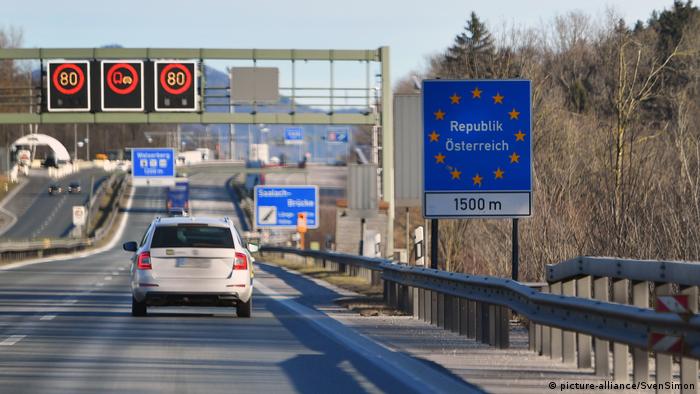
The Austrian government has announced that the border with Germany will be opened on June 15. Tourism in Austria has been effectively suspended due to the coronavirus pandemic. On May 29, hotels and other accommodation in Austria will be allowed to reopen. Austrian tourism is heavily dependent on guests from Germany.
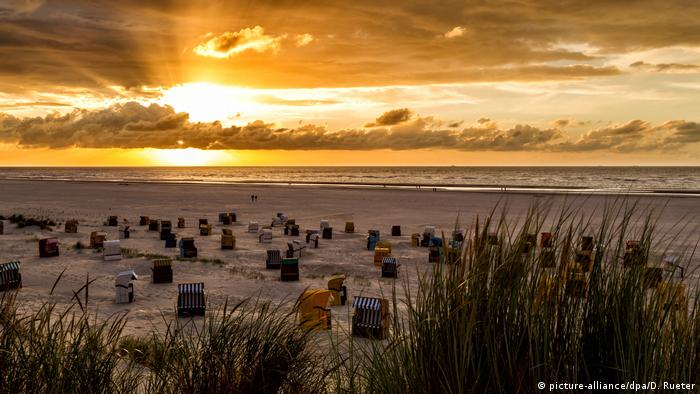
Borkum, Juist (photo) and the other East Frisian islands are happy to be able to greet tourists again, even if it's a limited surge of visitors. Since May 11, overnight stays in holiday apartments and camping sites throughout Lower Saxony have been allowed again. Holidaymakers must stay at least one week. However, day tourists and hotel overnight stays are still prohibited.
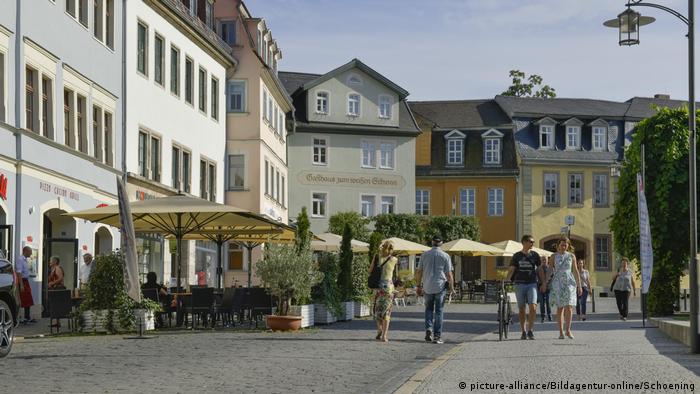
Thuringians are pioneers. Weimar is the first city in Germany to reopen restaurants and cafés. Since May 6, people have been sitting in the sun with a coffee or beer and enjoying a step back towards normality — while keeping their distance. Restaurants and hotels in the other federal states will also resume their limited operations by the end of May.
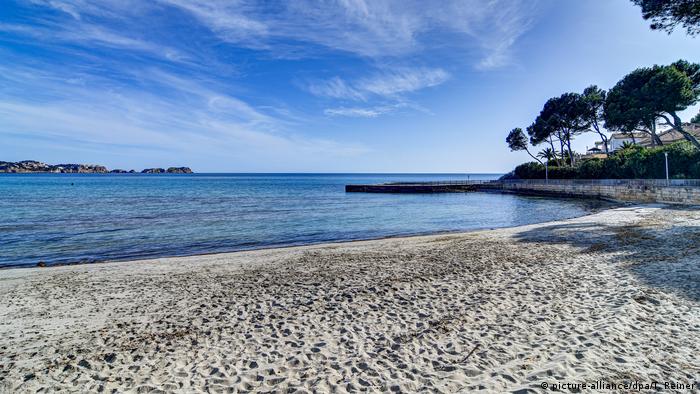
Holidaymakers might also be able to travel to the Balearic or Greek Islands in summer. "If there are very few new infections there and the medical care works, one could also think about a summer holiday in those places", the government's commissioner for tourism, Thomas Bareiss, told the Tagesspiegel newpaper. Long-distance travel, however, is likely to be cancelled this summer.
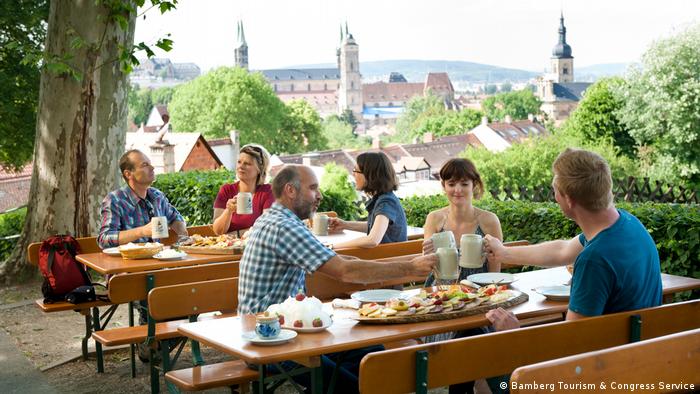
On May 18, the coronavirus lockdown for Bavaria's outdoor gastronomy ended and the beer gardens have reopened. Of course under strict conditions — waiters have to wear masks, for example. On May 25, indoor gastronomy is to follow, restaurants and cafes, with a limited number of guests. From May 30, the operation of hotels, and holiday homes in Bavaria will be allowed again.
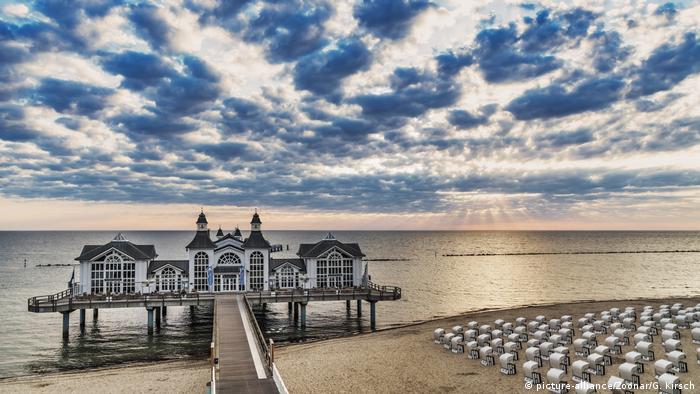
Mecklenburg-Western Pomerania is the first federal state to reopen to tourists from all over Germany: From May 25th they can again stay in hotels, guest houses and holiday homes. 60 percent of the bed capacity will be released for this purpose. This means that the tourist season can start with the Whitsun holidays in popular holiday regions like the Baltic Sea and the Mecklenburg Lake District.

One of Beijing's most important sights can be visited again after months of closure due to the coronavirus crisis. From Friday (May 1), visitors are allowed back into the palace complex on Tiananmen Square under strict security conditions. Instead of the previously usual 80,000 visitors, a maximum of 5,000 guests are to be admitted daily.

Germany extended on Wednesday (April 29) its worldwide travel warning due to the coronavirus crisis to at least June 14. The Federal Foreign Office said that "severe and drastic restrictions in international air and travel traffic and worldwide entry restrictions, quarantine measures and restrictions on public life in many countries can still be expected."
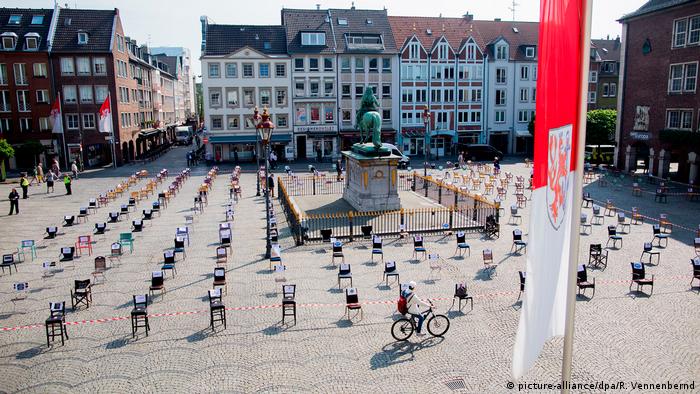
Gastronomes have set up empty chairs in central locations in Germany, such as here in Düsseldorf, to draw attention to their situation in the coronavirus crisis. "Without direct financial aid, most of our businesses will not survive," says Guido Zöllick, President of the German Hotel and Restaurant Association. "Suppliers and partners are also increasingly being drawn deeper into economic crisis."
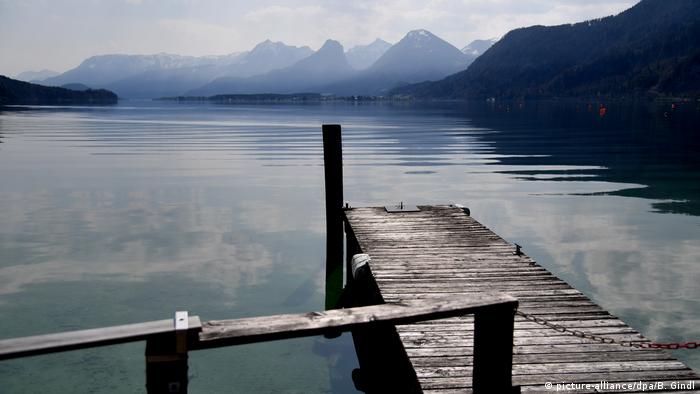
Austria's Chancellor Sebastian Kurz is confident that the border between Austria and Germany will soon be opened again for tourists. Both countries are on the right track in containing the spread of the coronavirus, Kurz told ARD television on Wednesday (April 22). This is the precondition for a revival of tourism. He did not name an exact date for the opening of borders.
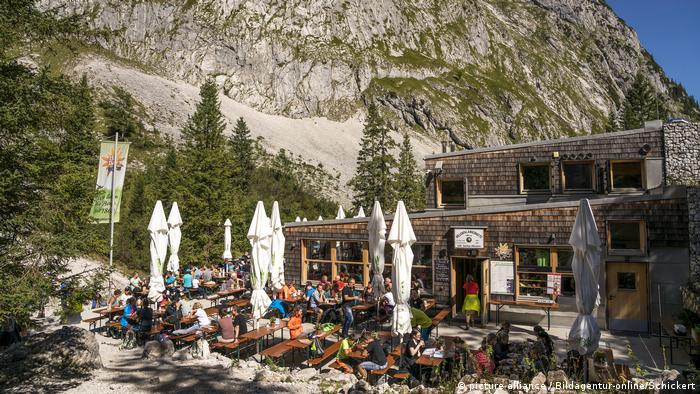
"A normal holiday season with crowded beach bars and busy mountain huts will not be possible this summer. That would be unacceptable," German Foreign Minister Heiko Maas said on Tuesday (April 21). However, he did not rule out the possibility that borders for tourists could be reopened before the summer and that holiday travel with certain restrictions might be possible.
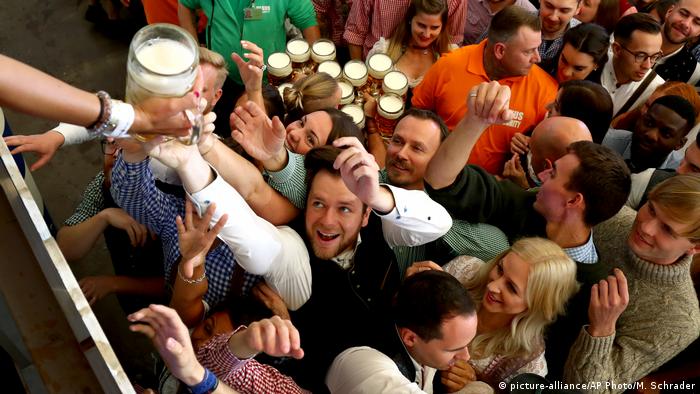
The Oktoberfest has been cancelled this year due to the coronavirus pandemic. Bavaria's premier Markus Söder and Munich's mayor Dieter Reiter announced the decision on Tuesday (April 21). "It pains us, and it is a great pity", said Söder. But in times of the coronavirus, the danger of infection at the folk festival, which attracts about six million visitors annually, would just be too great.
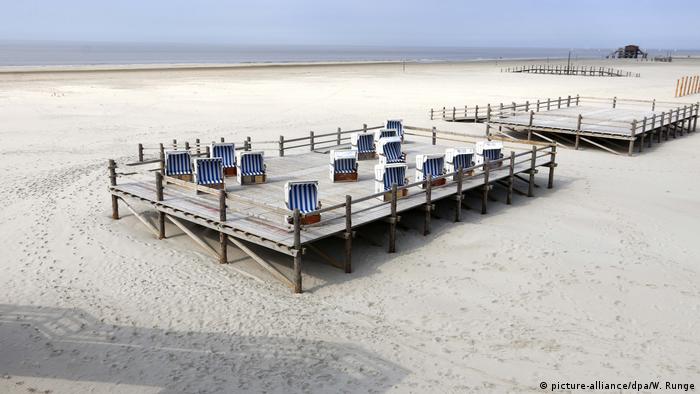
The Prime Minister of Schleswig-Holstein, Daniel Günther, hopes that tourism on the North and Baltic Seas will be revived in the summer. Despite the coronavirus crisis, he "definitely did not write off the summer tourism business," he said on April 19. While they are now proscribed, stays in secondary residences, holiday homes and finally hotels could be made possible again in three steps.
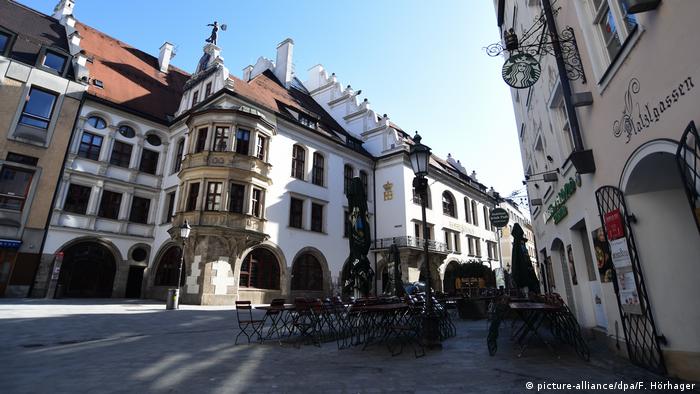
The government resolutions (April 15th) stipulate that people in Germany should continue to refrain from making private trips. The worldwide travel warning is to be upheld. Accommodation offers are only available for necessary and explicitly non-touristic purposes. Restaurants will also remain closed. Tourism is one of the industries that has been hit hardest in the coronavirus crisis.
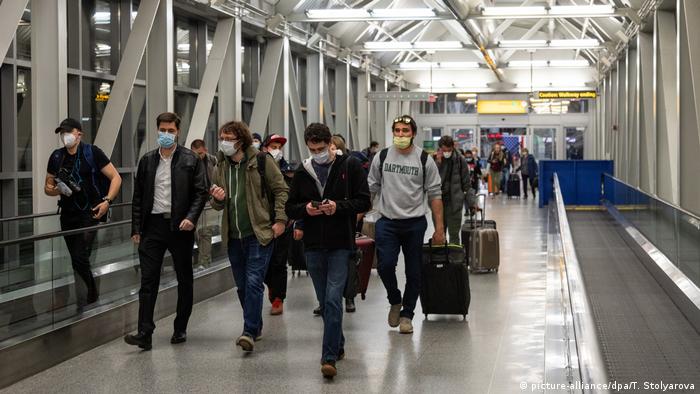
The entry ban imposed by the USA on foreign nationals from Europe will remain in place for the time being. Italy and Spain are still struggling with the coronavirus crisis and France has just extended measures to contain infections by the virus, US President Donald Trump said on Monday (April 13). The entry ban will remain in force until the countries show signs of improvement, Trump said.
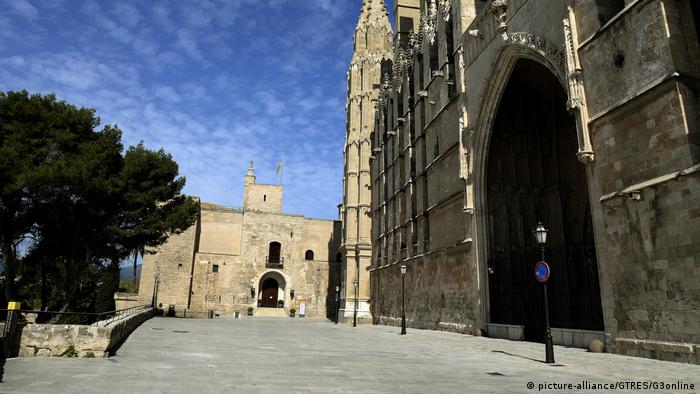
Hotels, cafes and souvenir shops are closed. It is unusually empty outside the Royal Palace in Palma (picture). The Easter season on the Spanish holiday island of Mallorca has been cancelled. The Majorcan hotel association now fears that due to the uncertain situation in the main markets of Germany and Great Britain, some hotels will remain closed even during the peak season.
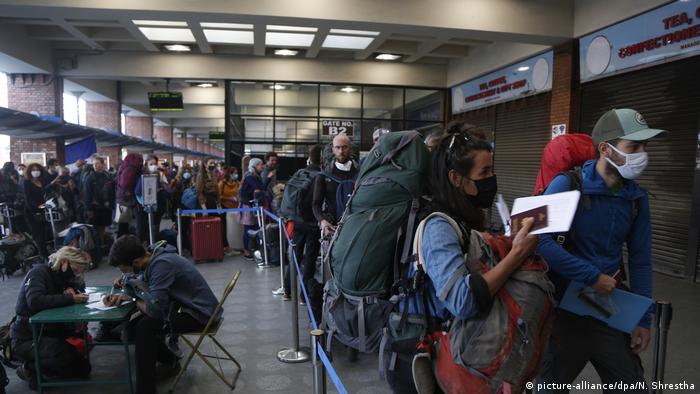
By Sunday (April, 5) 205,000 travelers had been brought back to Germany, according to the federal government. Airplanes from Peru and Colombia were the most recent to take off. More than 40,000 Germans however are still stranded abroad. Foreign Minister Heiko Maas said on Twitter. "We will continue our efforts to find solutions for the travelers who have not yet been able to return."
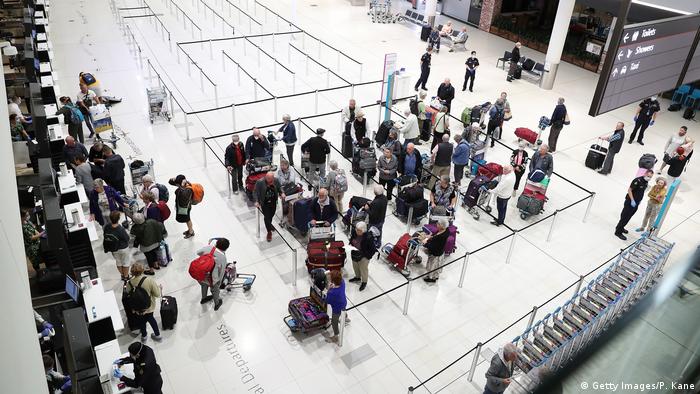
Thousands of foreigners stranded in New Zealand because of the coronavirus crisis will be able to leave the Pacific state from Friday (April 3). On Thursday, the New Zealand government announced that it would allow the "safe and orderly departure of tens of thousands" of stranded people. Earlier it had stopped return flights by foreign governments.

A light installation on the Matterhorn in Switzerland is giving a sign of solidarity and hope in the fight against the corona virus. Encouraging messages are also being projected on to many other tourist landmarks around the world. "Stay safe", "Stay at home" could be see on Monday evening on the Great Pyramid in Giza near the Egyptian capital Cairo.
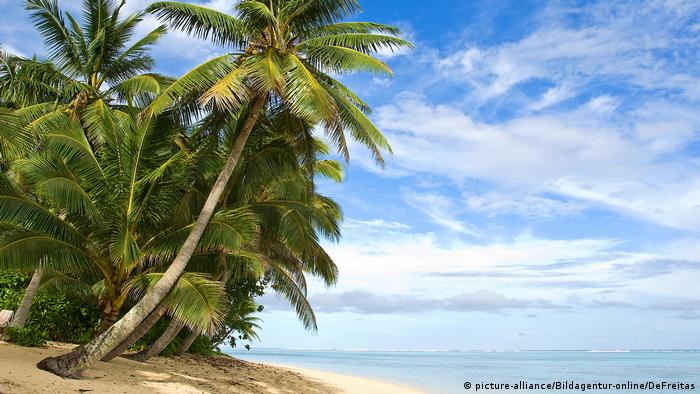
The repatriation process for Germans stranded abroad is ongoing. Until now, main destinations such as Egypt or Morocco have been addressed. "It will be more difficult with countries that only have small groups of scattered adventure vacationers," said the crisis manager of the German Foreign Office. Tourists in the Pacific Islands must first be rounded up in New Zealand and then flown out.
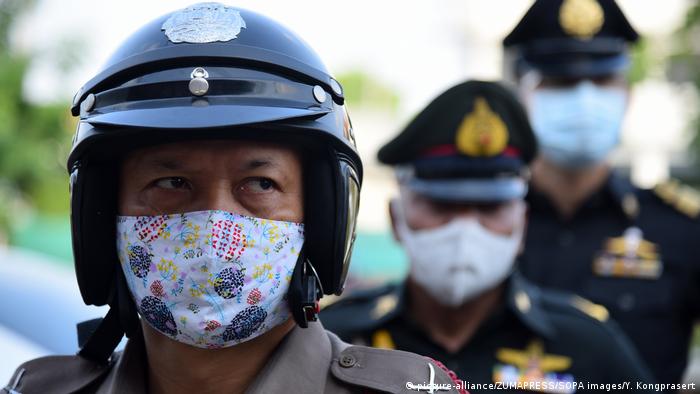
After long delays Thailand closed its borders on Thursday (March 26). The authorities had delayed the decision for a long time to safeguard the tourism sector. Now tens of thousands of tourists are stuck in the Southeast Asian tourist country. The German government has so far not organized a repatriation for German tourists, as Thailand is not considered a risk region.
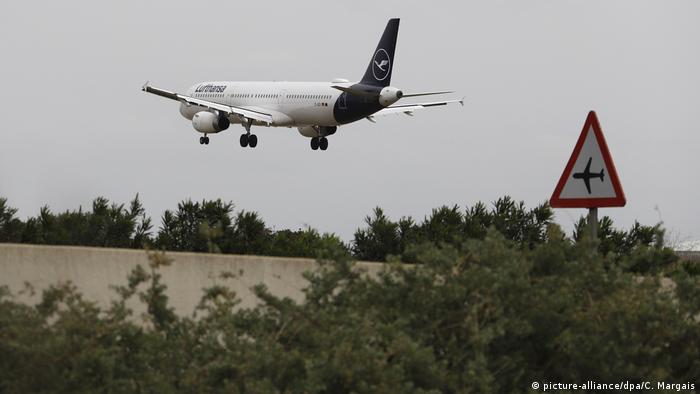
The German foreign ministry announced on Wednesday (March 25) that, together with tour operators, it had brought back more than 150,000 Germans from abroad. Tour operator TUI added that almost 95 percent of the tourists who were stranded because of the coronavirus pandemic are now back in Germany. They were mainly flown out from Egypt, Spain, Portugal and the Cape Verde Islands.
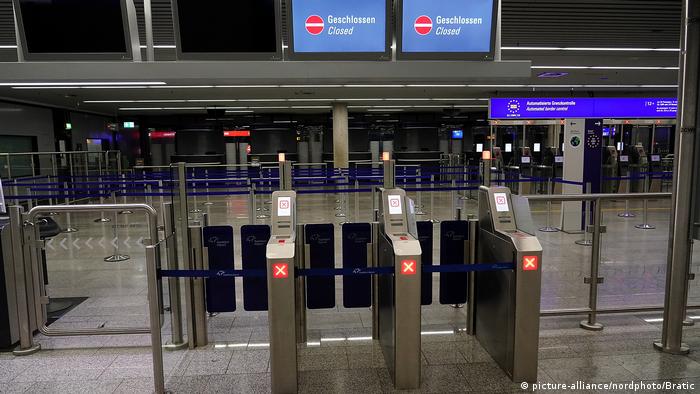
German Foreign Minister Heiko Maas has said that the warning against traveling abroad will remain in effect until the end of April. "This includes the Easter holidays," he said on Twitter. "Stay at home! Protect yourself and your fellow human beings," he appealed to the population. Many tour operators have also extended their travel ban until the end of April.

The EU Commission is supporting the return to Europe of tens of thousands of long-distance travellers. It intends to cover a large part of the costs, since most of the flight connections have been cancelled. "We are here to help them return," Commission President Ursula von der Leyen said in a video message.
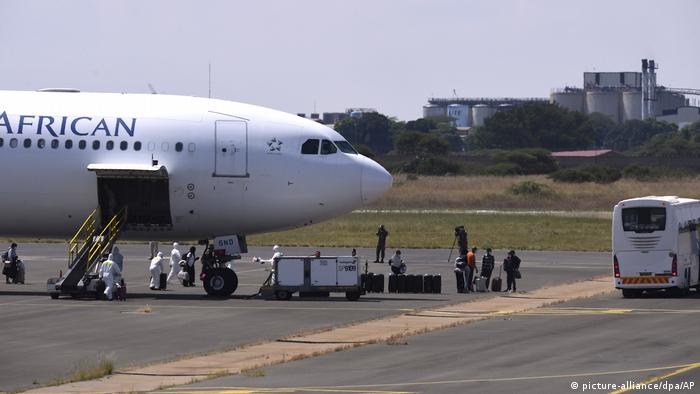
African countries have also ordered numerous measures to prevent the spread of the coronavirus. South Africa, for example, has banned access to the country for people coming from risk areas. Nigeria is monitoring the temperature of travelers at airports, ports and borders. Cameroon has closed its borders indefinitely.
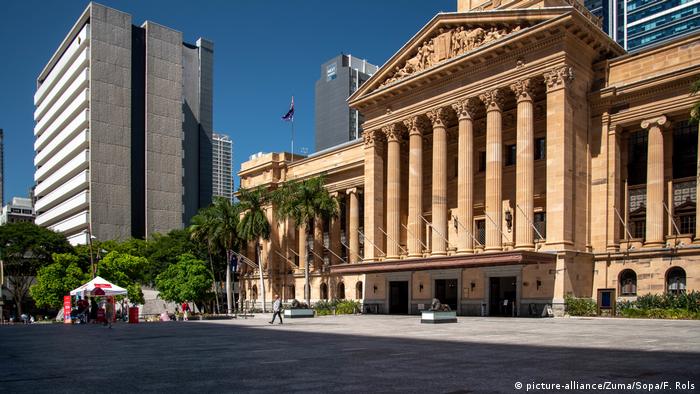
The Australian government has imposed an indefinite ban on all foreign travel by its citizens. Prime Minister Scott Morrison also called on all Australians who are abroad to return home. A 14-day compulsory quarantine for all people entering the country has already been in place for some time. Here, too, it has become quiet in the cities.
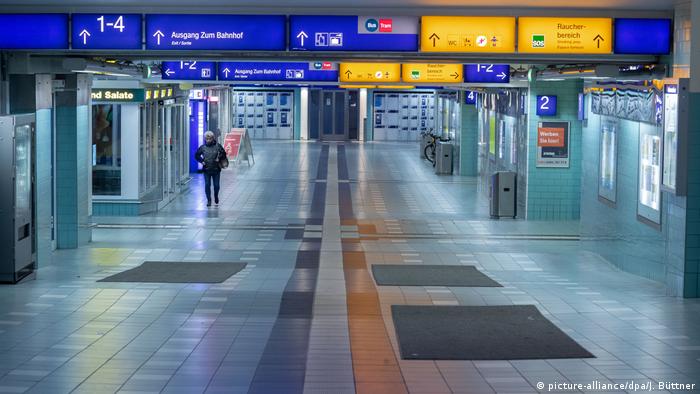
The coronavirus crisis is impacting travelers and the tourism industry with full force. Several tour operators, including TUI, has cancelled trips, and some airlines are shutting down. Germany's federal and state governments decided that overnight stays should only be used for "necessary and explicitly not for touristic purposes". Germans are to "no longer take holiday trips at home and abroad".
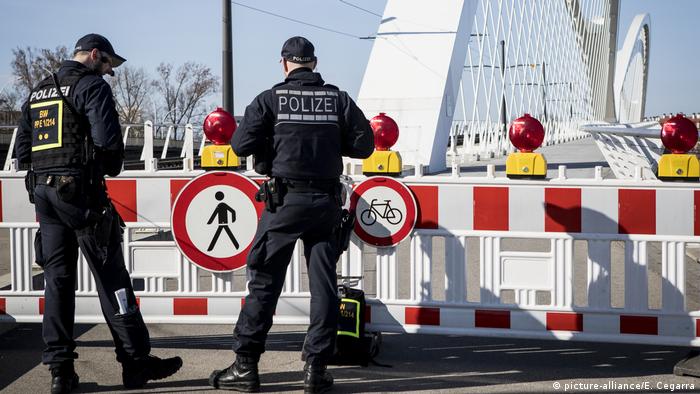
The EU has closed its entire external borders for 30 days as from Tuesday (March 17, 2020). "All travel between non-European countries and the European Union will be suspended for 30 days," French President Macron said in a television address on Monday (March 16,2020) evening. The Schengen Area, which includes several non-EU countries, has also closed its external borders.
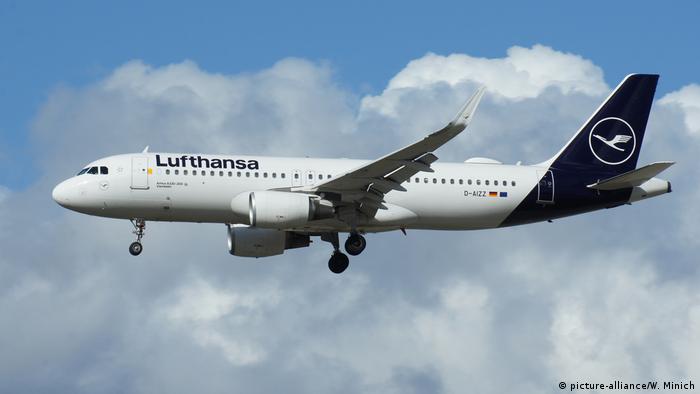
More and more countries are sealing their borders, and many flights are cancelled. With special flights Lufthansa and its subsidiary Eurowings want to bring up to 6,500 stranded holidaymakers from the Caribbean, the Canary Islands and on Mallorca back to Germany. In Morocco, the German government is assisting German tourists who are stranded there due to their return flights being cancelled.
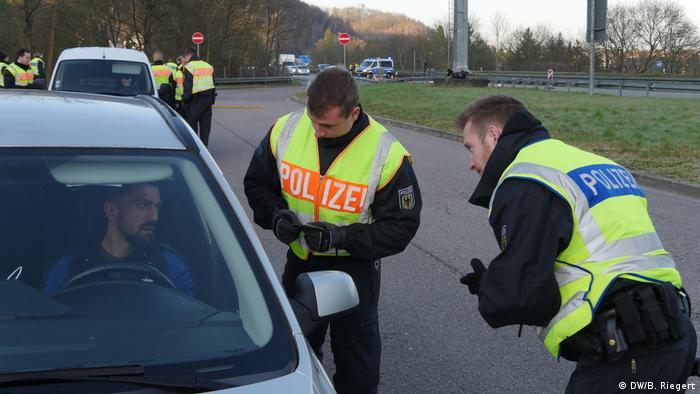
On Monday morning (March 16, 2020), Germany introduced entry controls at the borders with the five neighboring countries: France, Denmark, Luxembourg, Austria and Switzerland. Border crossings will be reduced to what is strictly necessary. Goods can continue to pass through, including commuters, but not travelers without good reason. The duration of the measures remains open.
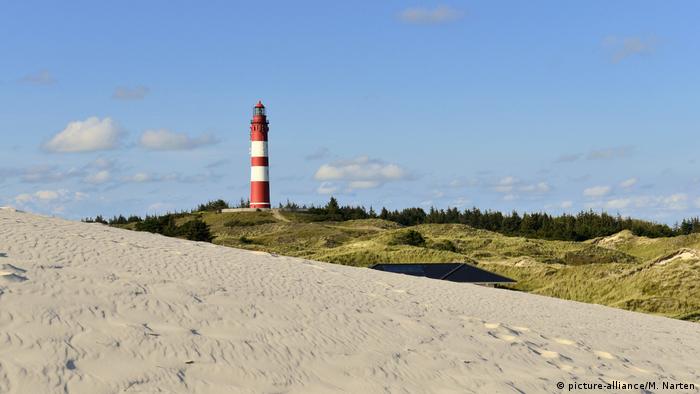
Whether Spiekeroog, Sylt or Rügen: Vacation on the northern German islands in the North and Baltic Sea is no longer possible as of March 16, 2020. Those who had already moved into their accommodation have been asked to return home. The health systems of the islands are not equipped to deal with large numbers of infected people. Regulations are to follow for mainland tourism.

Disneyland Paris and Disney World Florida have closed until the end of the month. Disney Cruise Line have also suspended all new departure through the same period. The company said the decision was made "with great caution" to protect guests and employees. The company said the parks in Tokyo, Hong Kong and Shanghai, which had already been closed, will also remain shut.
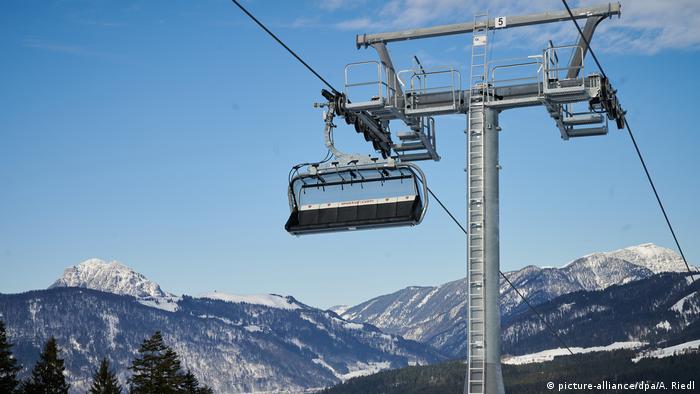
All ski areas in the Austrian provinces of Salzburg and Tyrol are ending the winter season early. Cable car operation will be discontinued as of Sunday (March 15, 2020). Hotels and accommodations will be closed from Monday. The provincial governments said that this should slow down the spread of the virus in the Alpine country. The two provinces account for most leading Austrian ski areas.
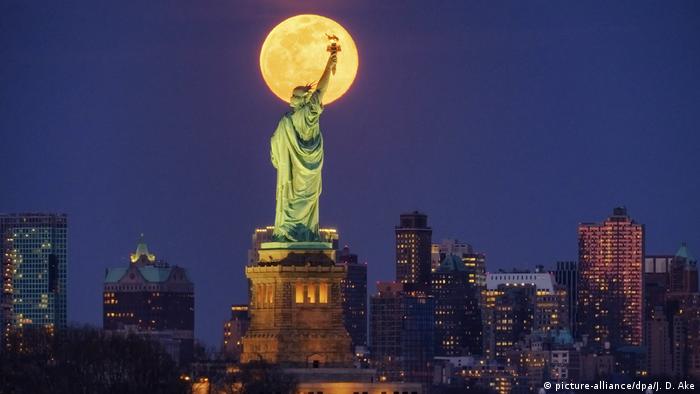
Due to the spread of the coronavirus, the USA is imposing a general 30-day travel ban on people from Europe. The entry ban comes into force on Friday (March 13, 2020) at midnight (local time). It does not apply to US citizens residing in Europe who have tested negative for the pathogen.
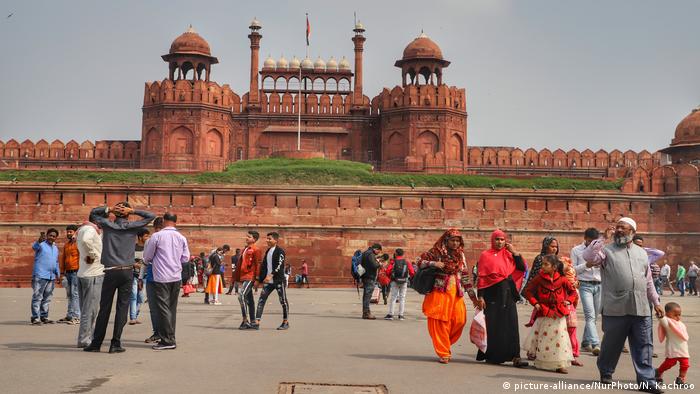
India has declared all tourist visas invalid for 1 month because of the corona virus. Only travelers who are already in the country are allowed to stay, the Indian Ministry of Health announced on Wednesday (March 11, 2020). The entry ban is to last until April 15 for the time being.
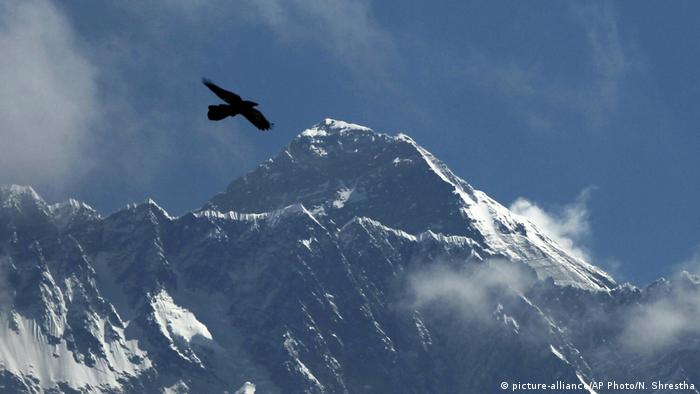
Climbing Mount Everest via the north side has been forbidden by Chinese authorities. The necessary permits for expeditions to the world's highest mountain were withdrawn on Thursday (March 12, 2020).
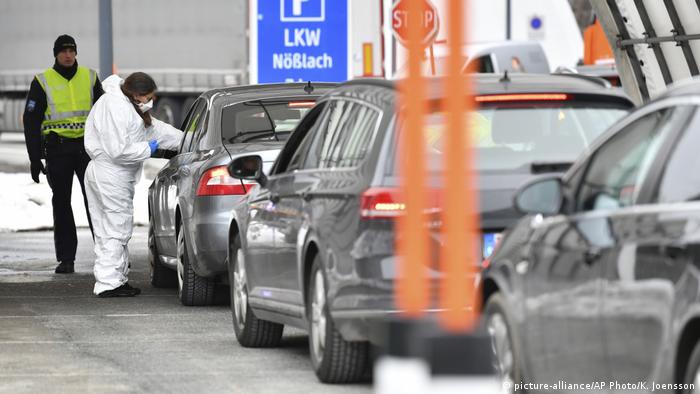
In order to reduce the spread, the border into neighboring Austria can only be crossed from Italy with a medical certificate. Slovenia has closed its border, and Albania has banned Italian air and ferry traffic. Many airlines have cancelled flights to Italy until at least 3 April. Germany, the UK, and Ireland tightened travel recommendations and called on their citizens to leave.
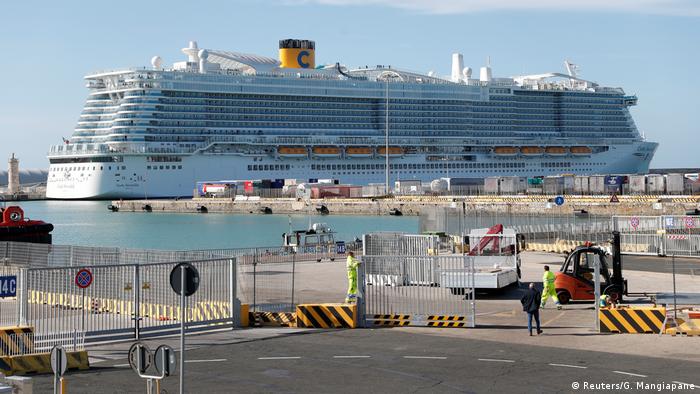
The Costa Crociere shipping company is cancelling all cruises in the Mediterranean for the time being. The cruises will be suspended until April 3, the Italian company announced on Tuesday (March 10). The measure affects thousands of passengers. Ships still operating in the Mediterranean will only call at Italian ports to let passengers disembark.
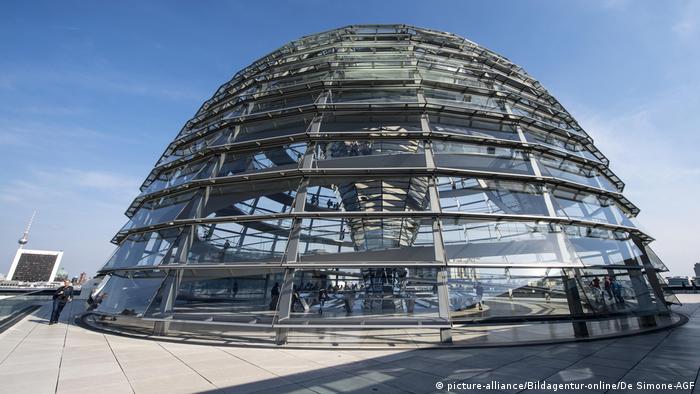
The dome and roof terrace of the Reichstag parliament building in Berlin have been closed to visitors since Tuesday (March 10, 2020) until further notice to prevent the possible spread of the coronavirus. The walkable dome and the roof terrace are visited by more than 2 million people every year, according to the Bundestag.
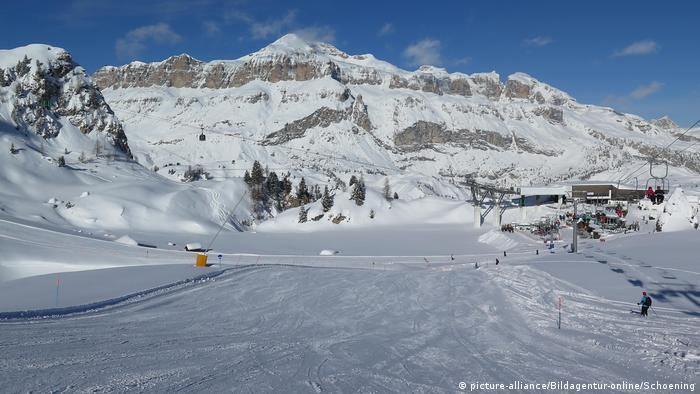
All ski facilities in Italy have been closed since Tuesday (March 10, 2020) due to the corona crisis. Prior to this, hoteliers and cable car operators in the South Tyrol region (photo) had already agreed to close their facilities. South Tyrol is particularly popular with winter sports tourists from Germany and Eastern Europe. The closure is effective until at least April 3.
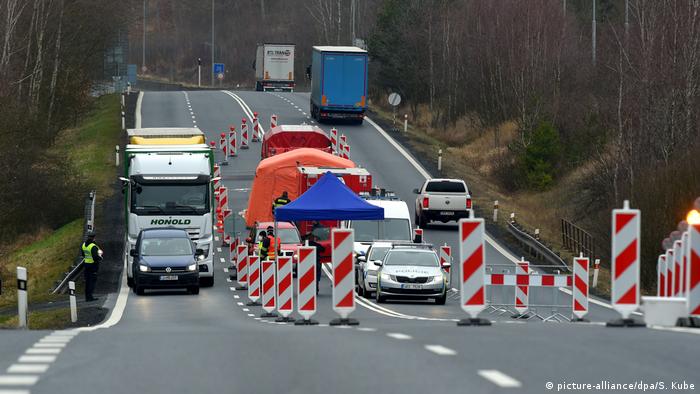
The Czech Republic (picture) and Poland are carrying out checks at the border with Germany to protect against the spread of the coronavirus. Since Monday (March 9), travelers have faced random temperature checks. The German government has warned against travelling to risk areas. And air passengers from China, Japan, South Korea, Iran and Italy will have to expect controls when entering Germany.
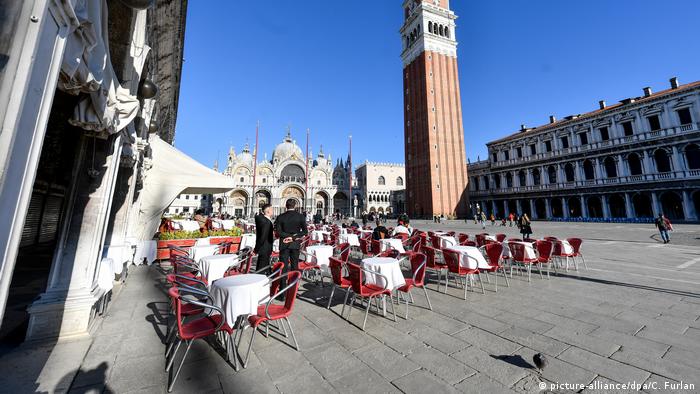
On March 8 the Italian government issued an entry and exit ban for the more than 15 million inhabitants of the northern Italian regions, which include the key business center Milan and the tourist magnet of Venice (photo). Cultural, sporting and religious events are also banned for visitors. Museums, cinemas and theaters remain closed nationwide.
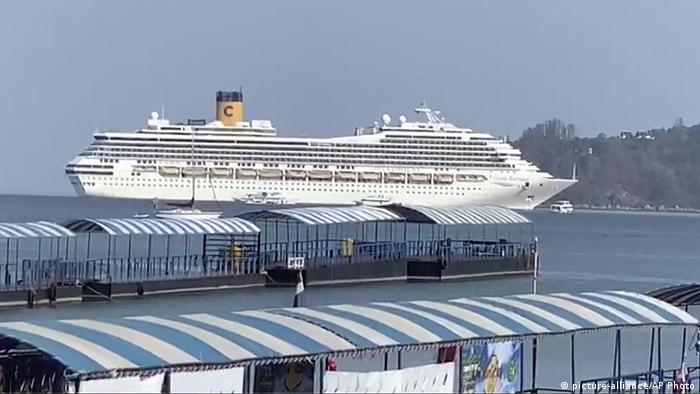
Repeatedly cruise ships have to be quarantined or prevented from docking. After cancellations in Thailand and Malaysia, the Costa Fortuna (photo) with 2,000 passengers, including 64 Italians, has been allowed to enter the port of Singapore. In Oakland, California, 2,000 passengers and 1,100 crew members of the Grand Princess are quarantined because 19 of them have tested positive for COVID-19.

Sights in Asia are particularly affected by travel restrictions for Chinese tourists. Hotspots such as the Senso-ji temple (picture) in Tokyo and the temple complexes of Angkor Wat in Cambodia are reporting a sharp drop in visitors. On March 9, the Ministry of Tourism in Thailand reported a 44% drop for February. Tourism accounts for 11% of the gross domestic product.